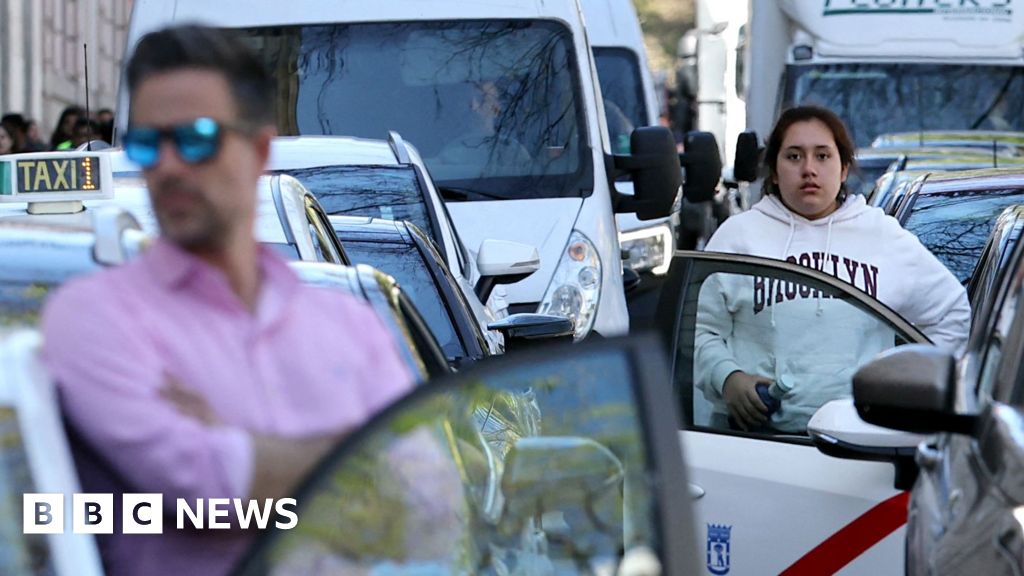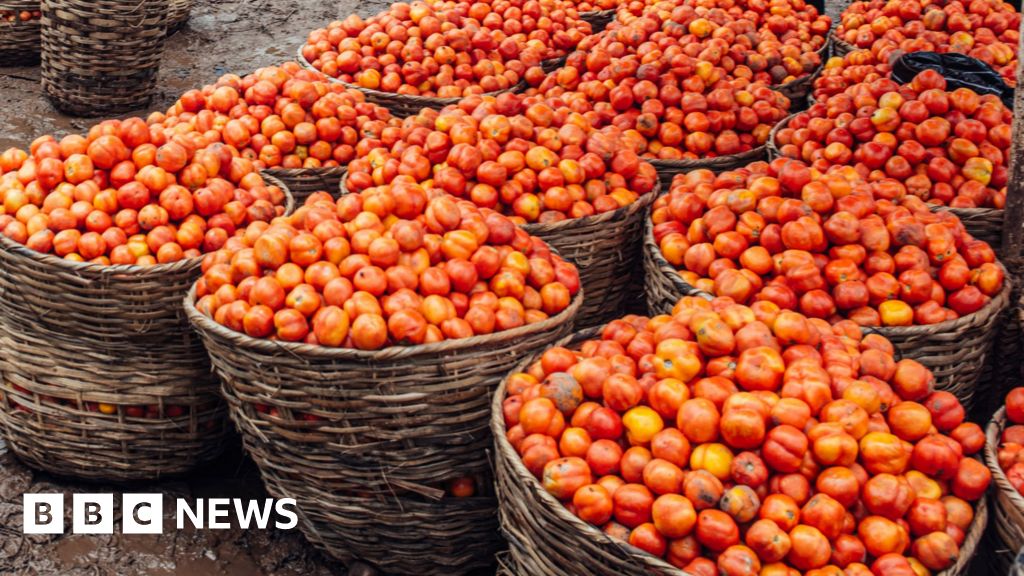How Taiwan’s elections challenge the power of China’s Communist Party | Elections News
If free and fair national elections are considered the hallmark of a democratic state, Taiwan has much to boast about.
In January, the self-ruled island held its eighth presidential election concurrently with a parliamentary vote.
Just 160km (100 miles) away on the other side of the narrow Taiwan Strait, the Communist Party of China (CPC) has ruled China since 1949, and though the party often claims that it governs a democratic state, there is no electoral process comparable with Taiwan’s.
China’s President Xi Jinping has referred to “whole-process people’s democracy” to describe the Chinese political system where the “people are the masters” but the party-state apparatus runs the people’s affairs on their behalf.
Ken Cai*, a 35-year-old entrepreneur from Shanghai, does not subscribe to Xi’s definition of democracy.
“The truth is that [mainland] Chinese people have never been allowed to choose their own leaders,” Ken told Al Jazeera.
“That is just propaganda.”
Ken’s critical assessment stands in sharp contrast to an assertion often presented by the CPC that their one-party rule is considered satisfactory by Chinese people.
President Xi has long said that China is following a unique development path under the guidance of its distinctive system of governance. Chinese officials have also presented criticism of Beijing’s record on human rights and democracy as being based on a lack of understanding of China and the Chinese people.
That is why Taiwan’s hosting of successful multiparty elections challenges Beijing’s argument that liberal democracy is incompatible with Chinese culture.
At the same time, Taiwan’s liberal democratic system clashes with Xi’s vision of a rejuvenated Chinese nation firmly under the CPC’s control and a wayward Taiwan eventually unified with the Chinese mainland.
“The Taiwanese experience is a clear affront to the CPC narrative,” said Chong Ja Ian, associate professor of China’s foreign policy at the National University of Singapore.
Taiwanese elections are a far more sensitive topic for Beijing than elections in other democracies as the democratic example being set by Taipei can be a more direct source of inspiration for people in mainland China, said Yaqiu Wang, research director for China, Hong Kong and Taiwan at the United States-based advocacy group Freedom House.
“When you see that people from your own in-group have democracy and can elect their leaders, it can cause particular frustration with your own non-elected leaders,” Wang said.
“That makes Taiwanese elections a threat to the CPC,” she added.
China censoring Taiwanese elections
It was perhaps not surprising that while leaders from countries such as Japan, the Philippines and the US congratulated Taiwan on the successful conclusion of its elections, the Chinese government did not.
Relations between China and Taiwan have been in a downward spiral ever since the outgoing president, Tsai Ing-wen, was elected in 2016.
The CPC views Tsai, her replacement President-elect William Lai Ching-te, and other members of the Democratic Progressive Party (DPP) as foreign-backed separatists and has not ruled out the use of force in its future plans to unify Taiwan with China.
Chen Binhua, spokesperson for Beijing’s Taiwan Affairs Office (TAO), reacted to the election results by saying that Lai’s 40 percent vote share and the DPP’s loss of its parliamentary majority revealed that the party “cannot represent mainstream public opinion on the island”, and the outcome “will not impede the inevitable trend of China’s reunification”.
On social media in China, many reacted to Chen’s comments by focusing on Beijing’s own democratic credentials.
“Enough, already – how can you criticise others’ elections when you don’t even allow elections at home,” one user wrote on the Chinese social media platform Weibo.
“So a general election doesn’t represent mainstream public opinion? What new sort of understanding is this?” read another comment, while a third even attacked Beijing’s Taiwan Affairs Office directly: “[TAO is] the most shameless, useless, piece-of-trash government department.”
All three comments have since been removed by censors.
Ailene Long*, a 31-year-old translator from the Chinese city of Shenzhen, told Al Jazeera that she found comments criticising Taiwan’s election ridiculous when measured against the shortcomings in China’s political system.
“You can’t ask questions about public opinion in Taiwan when people in China have never been allowed to choose anything other than the Communist Party,” Ailene said.
Freedom House’s Wang observed a lot of similar Chinese responses popping up across Chinese social media platforms as the Taiwanese election results came in.
“But a lot of them were quickly removed – even within a couple of minutes many were gone,” she told Al Jazeera.
Hashtags, comments and news about the Taiwanese election were repeatedly removed from Chinese social media by the state’s vast censorship network. Along with the tight censorship, there were also signs that the Chinese authorities on Taiwan’s election day had tried to drown the interest on Chinese social media by inflating other hashtags.
Such actions were a way for the authorities to remove displays of public criticism, according to Wang, but the underlying sentiment remained one of discontent with the Beijing government.
China’s democratic deficit in tough economic times
Ken Cai from Shanghai thinks that a lot of the online commentary about Taiwan’s election was really about airing dissatisfaction with the situation in China.
“The economy is not good for a lot of people, many are struggling so they take the opportunity to release their frustration with the government,” he explained.
For Ken, Taiwan’s elections also demonstrate how far Beijing and Taipei have diverged.
Ken recounted how his grandparents told him how they used to be afraid of Taiwan’s Nationalists attacking China, and that they heard stories from Taiwan about crackdowns on Taiwanese people.
After the Kuomintang (KMT), known as the Chinese Nationalists, were defeated by the Communists in the Chinese Civil War, they fled to Taiwan in 1949 where they initially held ambitions about reconquering mainland China. To cement their hold over Taiwan, the KMT imposed martial law, cracked down on civil liberties and rounded up Taiwanese opposed to their rule.
“But today it seems like Taiwan has free elections, a good economy, good relations with Western countries while China has none of those things,” he said.
In his view, the democratic deficit in China became particularly apparent during the COVID-19 outbreak in Shanghai in 2022 when most of the metropolis was placed under a strict lockdown.
“The lockdown was worse than COVID,” he said.
“A lot of people suffered, but the government didn’t listen to us or care about us, and maybe that would have been different in a more democratic system.”

For Ailene Long in Shenzhen, the government’s handling of the COVID-19 pandemic convinced her that China needs political reform with the recent Taiwanese elections presenting an attractive alternative.
Ailene paid close attention to the elections in Taiwan where she studied at a university for two years beginning in 2013. Now the chilly air blowing between Beijing and Taipei has made it increasingly difficult for her to arrange work trips and visit her friends in Taiwan.
“So, I was hoping that the opposition party would get elected this time so that things would get easier again,” she said, referring to Taiwan’s largest opposition party, KMT, which has traditionally been more China-friendly than the DPP.
On the election weekend, she was disappointed when the final vote tally showed a victory for the DPP’s Lai, but at the same time, she respects the result.
“And I think the Chinese government should learn to respect such elections as well and perhaps also be more open to having similar ones in China,” she said.
“If the Taiwanese can have free elections with different political parties, then why can’t we?”
Ailene also believes that democratic reforms would strengthen the CPC’s legitimacy in China and its claim that the Chinese people are their own masters.
“That would show that they are serious about a people’s democracy.”
*Names were altered to respect their requests for anonymity given the sensitivity of the topic.
Check out our Latest News and Follow us at Facebook
Original Source







